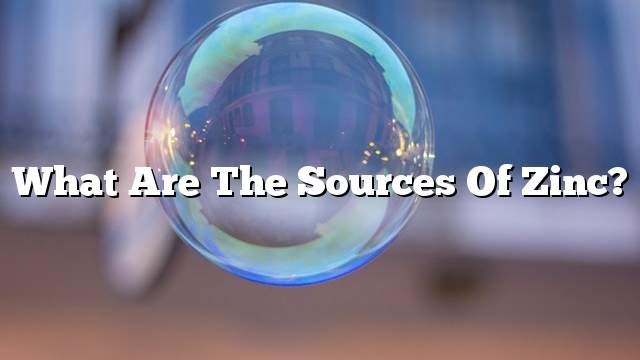Zinc
Zinc is an essential element in many body functions, which is negatively affected in the event of deficiency. Its functions include many metabolic processes. It enters the manufacture of nucleic acids and gene expression. , , As it is necessary in the work of the immune system, and it maintains cell membranes , Its components, and protects it from free radical attacks . Zinc also plays a role in the manufacture, storage and release of insulin , And has a role in blood clotting, and in the work of thyroid hormone, the transfer of vitamin A, and in the taste, healing wounds, and the formation of sperm, and the fetus , And bone health , In addition to the intake of sufficient quantities prevent hair loss, which occurs in the event of deficiency .
The lack of it is affected by all the functions mentioned above, so access to the daily needs of the diet is absolutely necessary , And in this article we will discuss the most important sources of zinc and its location in food.
Daily needs and maximum zinc by age group
| Age group | Daily needs (mg / day) | Upper limit (mg / day) |
|---|---|---|
| Infants 0-6 months | 2 | 4 |
| Infants 7-12 months | 3 | 5 |
| Children 1-3 years | 3 | 7 |
| Children 4-8 years | 5 | 12 |
| 9-13 years (males + females) | 8 | 23 |
| Males 14-18 | 11 | 34 |
| Males 19 years and over | 11 | 40 |
| Females 14-18 years old | 9 | 34 |
| Females 19 years and over | 8 | 40 |
| Pregnancy less than 18 years | 13 | 34 |
| Pregnant 19 years and over | 11 | 40 |
| Lactation is less than 18 years | 14 | 34 |
| Lactation 19 years and over | 12 | 40 |
Food sources of zinc
Foods high in protein content are good sources of zinc , And the good sources of food with zinc content include seafood (especially oysters), meat and eggs, and legumes and whole grains are less abundant sources, and bio availability is a problem for people who rely on plant sources to get their needs of zinc , Where phytates can interfere with absorption , Ready-made breakfast cereals, milk and milk products, and nuts are well-stocked , And for vegetables, their content varies according to the content of the soil in which they were grown In general, adequate intake of proteins is associated with adequate intake of zinc The following table shows the content of selected foods from zinc.
The content of some foods selected from zinc
| Food | Zinc content (mg) |
|---|---|
| Eastern oysters, 1/2 cup | 113 |
| Japanese oysters, 1/2 cup | 21 |
| Minced meat, low fat, 85 g | 4.6 |
| White beans boiled, 1 cup | 4.24 |
| Turkey turkey, 85 g | 3.8 |
| Partially skimmed ricotta cheese, 1/2 cup | 1.7 |
| American walnut | 1.6 |
| Tahini, spoon | 1.6 |
| Wheat grain cut in size, 1 cup | 1.5 |
| Roasted peanuts, 1/4 cup | 1.4 |
| Canned crab meat, 1/4 cup | 1.3 |
| Wild rice cooked, 1/2 cup | 1.1 |
| Edem cheese, 28 g | 1.1 |
| Green peas, 1 cup | 1.07 |
| Waffle cake made from oat bran, 1 | 1.05 |
| Milk, 2% creamy, 1 cup | 1.0 |
| Grilled chicken breast, 1 | 1.0 |
| English walnut, 1/4 cup | 0.8 |
| Eggs, 1 | 0.6 |
| Grilled salmon, 28 g | 0.4 |
,
Zinc deficiency
In this section we will briefly discuss the complications of zinc deficiency in the human body. Zinc deficiency causes:
- Hypogonadism: which includes stunting and delayed growth and function of the gonads, which occurs in cases of severe zinc deficiency .
- Loss of taste and smell: This condition is associated with severe zinc deficiency, which can be treated by improving the zinc level .
- Weakness and slow wound healing .
- Disorders in digestion and absorption, which can cause diarrhea .
- Weak immune responses .
- Decline thyroid function .
- Anorexia .
- Skin and eye problems .
- Hair loss .
The problem of zinc deficiency in the body can be treated by treating the causes that led to its deficiency, such as digestive problems, or by increasing its intake of dietary sources, and taking dietary zinc supplements as a prescription .
